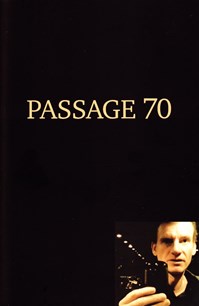Mod en neutral seksualitet! eller Roland Barthes som queerteoretiker?
DOI:
https://doi.org/10.7146/pas.v28i70.24482Resumé
Jonatan Leer: “Towards a Neutral Sexuality! or Roland Barthes as a Queer Thinker?”
This article argues that the work of Roland Barthes has interesting perspectives in common with queer theory. This argument is put forward by using his concept of ‘the neutral’ that Barthes defines as “that which outplays the paradigm”. This notion was presented at a series of lectures at Collège de France in 1977. Through a reading of Barthes’ autobiography, Roland Barthes par Roland Barthes (1975), the article demonstrates how Barthes tries to outplay the paradigms that rule over the hegemonic understanding of gender and sexuality. Furthermore, the fragmented text presents a vision of a sexual utopia, a neutral sexuality, that tries – like queer theory – to go and think beyond a binary conception of gender and sexuality. Finally, it is suggested that we should start to think about a movement of “French queer theory” in the late 1970’s that beside Barthes includes Jean Baudrillard.
Downloads
Publiceret
Citation/Eksport
Nummer
Sektion
Licens
Forfattere, der publicerer deres værker via dette tidsskrift, accepterer følgende vilkår:
- Forfattere bevarer deres ophavsret og giver tidsskriftet ret til første publicering, samtidigt med at værket efter publiceringen er omfattet af en Creative Commons Attribution-licens, der giver andre ret til at dele værket med en anerkendelse af værkets forfatter og første publicering i nærværende tidsskrift.
- Forfattere kan indgå flere separate kontraktlige aftaler om ikke-eksklusiv distribution af tidsskriftets publicerede version af værket (f.eks. sende det til et institutionslager eller udgive det i en bog), med en anerkendelse af værkets første publicering i nærværende tidsskrift.
- Forfattere har ret til og opfordres til at publicere deres værker online (f.eks. i institutionslagre eller på deres websted) forud for og under manuskriptprocessen, da dette kan føre til produktive udvekslinger, samt tidligere og større citater fra publicerede værker (se The Effect of Open Access).





